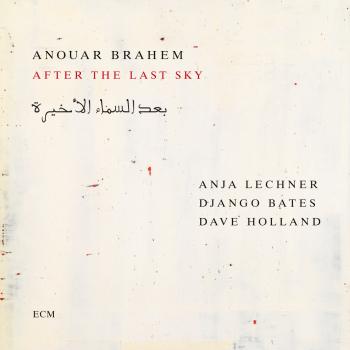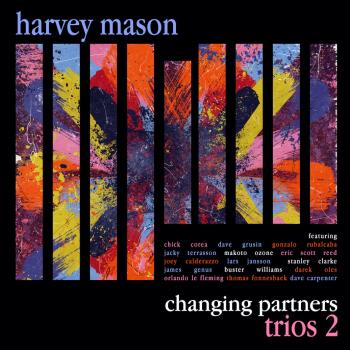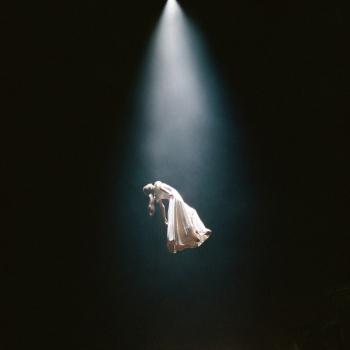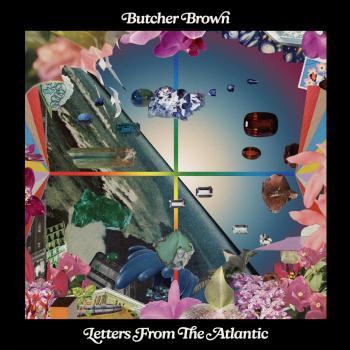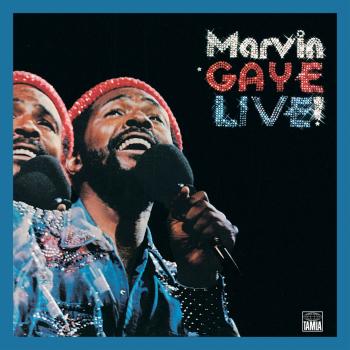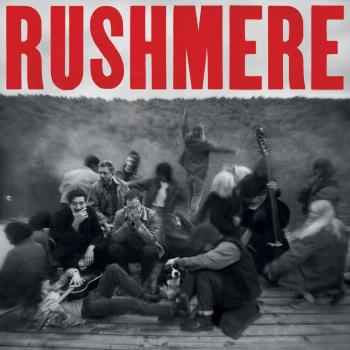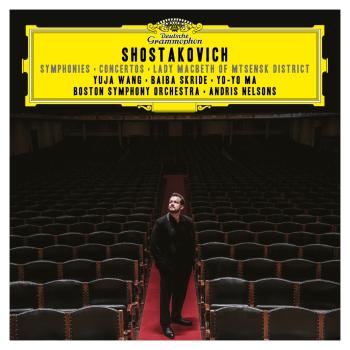
Everybody's in Show-Biz (Remastered Legacy Edition) The Kinks
Album Info
Album Veröffentlichung:
1972
HRA-Veröffentlichung:
31.05.2016
Label: Legacy Recordings
Genre: Rock
Subgenre: Classic Rock
Interpret: The Kinks
Komponist: Raymond Douglas Davies, Benny Davis, Harry Akst, Dave Davies, Irving Burgie, William Attaway, Jerry Bock, George David Weiss, Lawrence Holofce
Das Album enthält Albumcover
Entschuldigen Sie bitte!
Sehr geehrter HIGHRESAUDIO Besucher,
leider kann das Album zurzeit aufgrund von Länder- und Lizenzbeschränkungen nicht gekauft werden oder uns liegt der offizielle Veröffentlichungstermin für Ihr Land noch nicht vor. Wir aktualisieren unsere Veröffentlichungstermine ein- bis zweimal die Woche. Bitte schauen Sie ab und zu mal wieder rein.
Wir empfehlen Ihnen das Album auf Ihre Merkliste zu setzen.
Wir bedanken uns für Ihr Verständnis und Ihre Geduld.
Ihr, HIGHRESAUDIO
- Studio Recordings:
- 1 Here Comes Yet Another Day 03:53
- 2 Maximum Consumption 04:02
- 3 Unreal Reality 03:32
- 4 Hot Potatoes 03:31
- 5 Sitting in My Hotel 03:24
- 6 Motorway 03:29
- 7 You Don't Know My Name 02:34
- 8 Supersonic Rocket Ship 03:29
- 9 Look a Little on the Sunny Side 02:48
- 10 Celluloid Heroes 06:20
- Live:
- 11 Top of the Pops (Live) 04:30
- 12 Brainwashed 02:59
- 13 Mr. Wonderful (Live) 00:43
- 14 Acute Schizophrenia Paranoia Blues (Live) 03:56
- 15 Holiday (Live) 03:51
- Live at Carnegie Hall:
- 16 Muswell Hillbilly (Live) 03:09
- 17 Alcohol (Live) 05:20
- 18 Banana Boat Song (Live) 01:40
- 19 Skin and Bone (Live) 03:59
- 20 Baby Face (Live) 01:55
- 21 Lola (Live) 01:40
- 22 'Til the End of the Day (Live) 02:16
- 23 You're Looking Fine (Live) 04:38
- 24 Get Back in Line (Live) 03:13
- 25 Have a Cuppa Tea (Live) 02:58
- 26 Sunny Afternoon (Live) 02:38
- 27 Muswell Hillbilly (Live at Carnegie Hall) 03:21
- 28 Brainwashed (Live at Carnegie Hall) 02:57
- 29 Acute Schizophrenia Paranoia Blues (Live at Carnegie Hall) 04:11
- 30 Holiday (Live) 03:26
- 31 Alcohol (Live) 06:39
- 32 Complicated Life (Live) 03:22
- 33 She's Bought a Hat Like Princess Marina (Live) 03:17
- 34 Long Tall Shorty (Live) 02:29
- 35 History 05:20
- Alternate Mixes:
- 36 Supersonic Rocket Ship (Alternate Mix) 04:06
- 37 Unreal Reality (Alternate Mix) 03:58
- Backing Track:
- 38 Sophisticated Lady (Backing Track) 03:21
Info zu Everybody's in Show-Biz (Remastered Legacy Edition)
The 2016 Legacy Edition of Everybody's In Show-Biz includes the original album, produced by Raymond Douglas Davies, in its entirety alongside a full disc's worth of previously unissued studio sessions outtakes (recorded for the album in 1972 at Morgan Studios, Willesden, London) and live material (recorded March 2-3, 1972 during The Kinks' triumphant Carnegie Hall concert run).
A concept album of sorts, Everybody's In Show-Biz drew its themes and inspirations from the trials, tribulations and triumphs of life as a touring musician. (The raucous Carnegie Hall recordings on the album come from one of the first North American concerts performed by The Kinks after the lift of a four-year ban imposed on the group by the American Federation of Musicians in 1965.) The songs on Everybody's In Show-Biz were initially intended to serve as the soundtrack to The Colossal Shirt, a never-realized feature film about The Kinks on the road.
'Life keeps using me, keeps on abusing me, mentally and physically,' Davies sings on the album's 'Maximum Consumption.' 'I gotta stay fit, stay alive, need fuel inside, eat food to survive….' Stylistically, Everybody's in Show-Biz finds Davies further exploring his interest in Americana-inspired musical arrangements as heard on Muswell Hillbillies.
Everybody's In Show-Biz showcases the second great classic Kinks line-up: frontman Ray Davies, guitarist Dave Davies, bassist John Dalton, keyboardist John Gosling and drummer Mick Avory, joined by brass and woodwind players Mike Cotton, John Beecham and Alan Holmes (all of whom played on Muswell Hillbillies).
The Carnegie Hall recordings include a variety of Kinks originals in addition to unconventional covers including 'Mr. Wonderful' (from the Sammy Davis Jr.-led musical of the same name), the 1920s popular standard 'Baby Face' (made famous by Al Jolson) and 'The Banana Boat Song' (a calypso-folk perennial popularized by Harry Belafonte).
The new Legacy Edition of Everybody's In Show-Biz includes never-before-heard live versions of 'Sunny Afternoon,' 'Get Back in Line,' 'Complicated Life' and the rarely-played 'Long Tall Shorty' as well as alternate versions of 'Supersonic Rocket Ship,' 'Unreal Reality' and the debut release of 'History,' which foreshadowed The Kinks' next concept album, 1973's Preservation Act 1.
„Everybody's in Show-Biz is a double album with one record devoted to stories from the road and another devoted to songs from the road. It could be labeled 'the drunkest album ever made,' without a trace of hyperbole, since this is a charmingly loose, rowdy, silly record. It comes through strongest on the live record, of course, as it's filled with Ray Davies' notoriously campy vaudevellian routine (dig the impromptu 'Banana Boat Song' that leads into 'Skin & Bone,' or the rollicking 'Baby Face'). Still, the live record is just a bonus, no matter how fun it is, since the travelogue of the first record is where the heart of Everybody's in Show-Biz lies. Davies views the road as monotony -- an endless stream of identical hotels, drunken sleep, anonymous towns, and really, really bad meals (at least three songs are about food, or have food metaphors). There's no sex on the album, at all, not even on Dave Davies' contribution, 'You Don't Know My Name.' Some of this is quite funny -- not just Ray's trademark wit, but musical jokes like the woozy beginning of 'Unreal Reality' or the unbearably tongue-in-cheek 'Look a Little on the Sunnyside' -- but there's a real sense of melancholy running throughout the record, most notably on the album's one unqualified masterpiece, 'Celluloid Heroes.' By the time it gets there, anyone that's not a hardcore fan may have turned it off. Why? Because this album is where Ray begins indulging his eccentricities, a move that only solidified the Kinks' status as a cult act. There are enough quirks to alienate even fans of their late-'60s masterpieces, but those very things make Everybody's in Show-Biz an easy album for those cultists to hold dear to their hearts.“ (Stephen Thomas Erlewine, AMG)
Ray Davies, vocals, acoustic guitar, resonator guitar
Dave Davies, lead guitar, guitars, banjo, backing vocals, lead vocal on 'You Don't Know My Name'
John Dalton, bass, backing vocals
John Gosling, keyboards
Mick Avory, drums
Mike Cotton, trumpet
John Beecham, trombone, tuba
Alan Holmes, saxophone, clarinet
Dave Rowberry, organ on 'Celluloid Heroes'
Recorded March-June 1972 at Morgan Studios, London and Carnegie Hall, New York City, NY, 2–3 March
1972
Produced by Ray Davies
Digitally remastered
The Kinks
are recognised as one of the most important and influential British groups of all time, with millions of record sales and countless awards and accolades to their name. From their explosive beginnings as part of the British Beat movement to forays into concept albums, stadium rock and acoustic balladeering, The Kinks have left an unimpeachable legacy of classic songs, many of which form the building blocks of popular music as we know it today.
Hailing from Muswell Hill in north London, The Kinks were formed by brothers Ray and Dave Davies. Calling themselves The Ravens, an early line-up saw them playing a combination of skiffle and rock and roll with friend Peter Quaife on bass. A self-produced demo tape reached record producer Shel Talmy who helped the band land a contract with Pye Records in 1964. Before signing, the group replaced their drummer with Mick Avory and renamed themselves The Kinks.
With the classic line-up in place, music history was about to be written and, after two failed singles (including a cover of Little Richard's Long Tall Sally), the group's third, You Really Got Me, stormed to the top of the UK charts. Written by Ray and Dave in their parents' front room, the song has since been cited as the inspiration for garage rock, punk, heavy metal and on contempories The Who. An album, The Kinks, was hastily assembled in the aftermath of the monster hit and was, in turn, swiftly followed by a second Top 10 single, All Day and All Of the Night.
Between 1965-1967, The Kinks enjoyed their first commercial peak, scoring nine British and seven US chart hits. 1965's Tired Of Waiting For You displayed Ray's world-weary vocal style while Dave came up with a then innovatory Indian style drone guitar on See My Friends. As Ray's songwriting developed, he emerged as a witty, compassionate social commentator, chronicling the absurdities and aspirations of English life. He took stabs at fashion victims with Dedicated Follower Of Fashion and his fellow nouveau rich pop star peers on Sunny Afternoon. He even created a hymn to the Thames on the peerless Waterloo Sunset.
Despite the Kinks' commercial success at home, an unresolved dispute with the American Federation of Musicians during a 1965 tour, led to a ban on US appearances which lasted until 1969. These problems coupled with the pressures of recording and touring caused Ray to collapse from nervous exhaustion in 1966. So, with most UK bands looking to America's burgeoning flower power revolution for inspiration, Ray looked no further than his back garden for his own concept album, 1968's Village Green Preservation Society. On the album Ray developed the major themes of his work, a lament for the traditions of a near-mythical England lost among modernity. Despite flirting with the de rigeur psychedelia sound, the album was overlooked by the British record-buying public and one of the Kinks' most artistically successful albums slipped away. Fortunately, subsequent years have seen it grow in stature and it’s now recognised as one of the most important British albums ever released.
The loftily named follow up, Arthur - The Decline and Fall of the British Empire, addressed similar themes, portraying an English family looking back over their experiences before emigrating to Australia featuring the oft-covered Victoria. The mood lightened a little with the monster 1970 hit single Lola. 1971's Muswell Hillbillies album echoed Village Green's collection of storybook vignettes and the single Supersonic Rocketship from Everybody’s In Showbiz went Top 20 in 1972 while Celluloid Heroes from the same album became a live favourite . The remainder of the '70s found our heroes tackling a dazzling array of real-life themes and situations with the bands four concept albums, Preservation Act 1, Preservation Act 2, Soap Opera and Schoolboys in Disgrace. While the UK hits dried up, their sizeable following in the US brought them commercial rewards and, in 1977, a Top 30 album in the form of Sleepwalker.
Two years later the band released the hard rock Low Budget album and became belated rock stars in America, gaining a sizeable chunk of the stadium rock circuit, selling out Madison Square Gardens. The Americans also lapped up early 80's albums Give The People What they Want and State Of Confusion which featured the hit singles Better Things and Destroyer. The Kinks even found themselves back in the UK charts with 1983’s, Come Dancing. For many years The Kinks had been receiving reverential nods from the rock fraternity, all of which increased their cachet with wave after wave of new bands and musicians. In 1978 The Jam had covered David Watts while The Pretenders had their first UK hit with a version of Stop Your Sobbing. Biggest of all was Kirsty McColl’s breathtaking take on ‘Days’.
Through the 90s, The Kinks garnered a whole new generation of fans as yet another wave of British musicians paid tribute to the band. Blur’s Damon Albarn in particular acknowledged Davies as a key influence: the classic Kinks sound and sensibilities underpin the Brit Pop-ers’ classic triptych of ‘London albums’, Modern Life Is Rubbish, Parklife and The Great Escape. With The Kinks on hiatus since 1996 Ray Davies continued to record and tour acclaimed albums like 2006’s Other People’s Life and 2007’s Working Man’s Café. In 2009 he released The Kinks Choral Collection, an album of Kinks compositions in collaboration with the Crouch End Festival Chorus.
Despite intermittent rumours to the contrary throughout the late 1990s and 2000s, ill-health scuppered plans for a reunion of the original line-up. Sadly, Peter Quaife, who had been receiving kidney dialysis for more than ten years, died on 23rd June 2010. Ray Davies dedicated his June 27th performance at the Glastonbury festival to his honour, telling the crowd, “I wouldn’t be here today if it wasn’t for him”.
Dieses Album enthält kein Booklet

